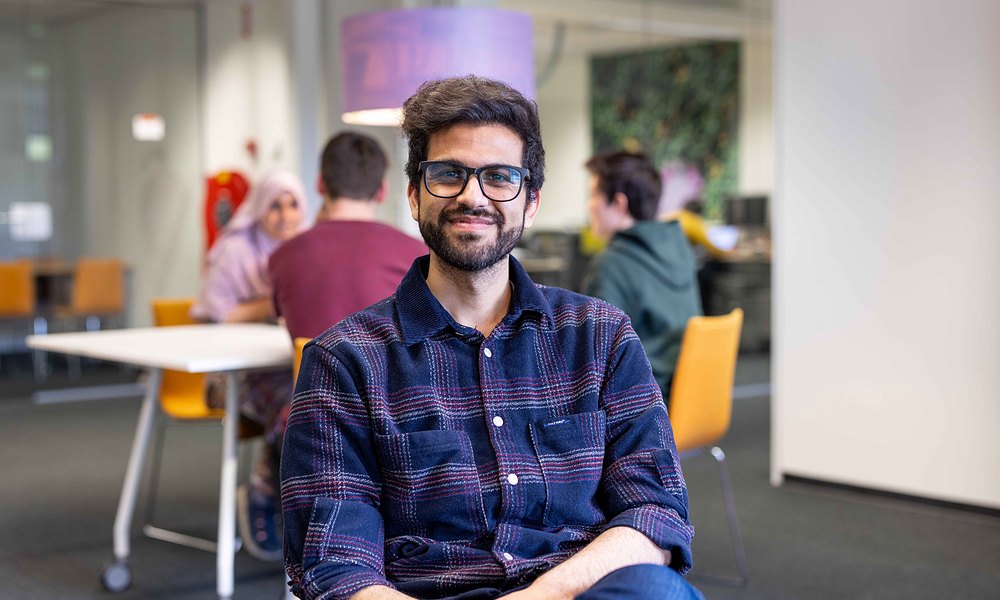'I wrote a model that predicts side effects after radiation therapy'
- Student project

Some patients with a tumor in the face or neck area get a dry mouth after radiation therapy because the salvatory glands have been affected. During his graduation project at the University Medical Centre Groningen (UMCG), second year masterstudent Data Science for Life Sciences Hooman Bahrdo build a model to predict who will be affected by this side effect, so it may be prevented in the future.
The prevention of side effects that show up in the years after radiation therapy is gaining interest, because the life expectancy of people with cancer is now much longer than it used to be. 'If people live longer, it is important to try and prevent these kind of side effects that can affect their quality of life', says Hooman. 'And to prevent side effects, you first have to know who might be affected by them.'
To get an idea of this, Hooman build a model that could predict if patients might be at risk of side effects. 'I used the data from the UMCG to create a machine learning model based on images before, during and after the treatment. And we managed to make accurate predictions of side effects for 6 and 12 months after the treatment.'
So the model seems to be working, although Hooman does want to finetune it further. 'The data set was quite limited, only 255 patients, so we need to wait for more data from the new cohort to retrain the model. But we do know that it is working, so that is great news.'
Despite the great results, it will take a while before doctors can actually use the model for their patients. 'Right now it is mainly useful for research purposes', Hooman says. 'We need to validate the model further, and simplify it so that it can be easily used by clinicians. I can imagine this will happen in the future, but it could take a few years.'
Meanwhile Hooman graduated and has accepted a position as PhD-student at the UMCG, and he will be working on similar models. 'My PhD is in a different department, but I will still work on writing models that can help in radiation therapy, although I will now look more into planning and positioning.'
He is glad he made the step to study at the master Data Science for Life Sciences. 'I studied physics and my goal is to become a medical physicist, because I really want to help people. I am glad that this master helped me to get a step closer to my goal, and it has already given me the chance to contribute to important projects.'
How satisfied are you with the information on this page?